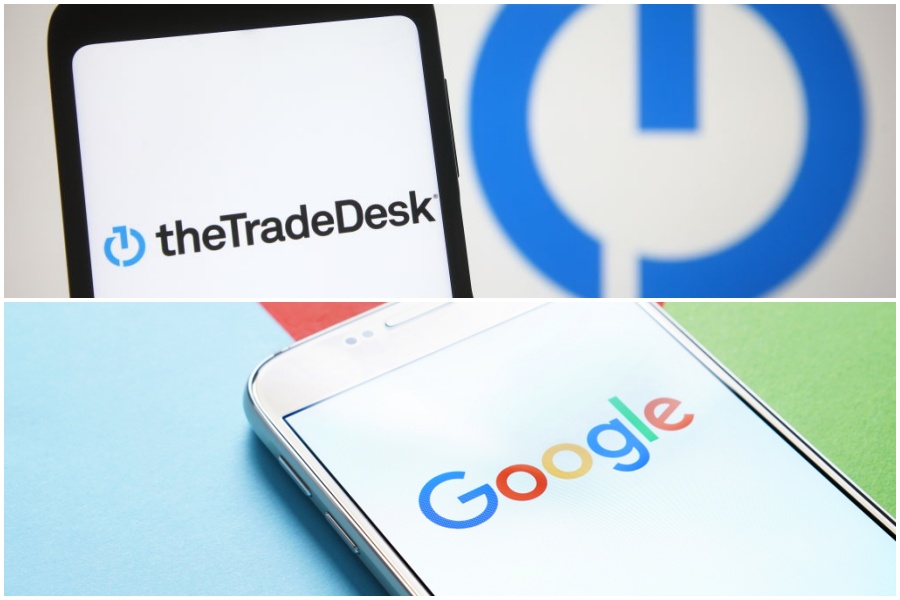The Trade Desk has announced it will stop buying ads through Google's Open Bidding auction as it launches a new product that connects advertisers directly with premium publishers.
The demand-side platform has struck deals with around a dozen publishers including Conde Nast, Reuters and The Washington Post to onboard their inventory in its OpenPath product.
OpenPath works by integrating with industry header-bidding solution Prebid, which connects a publisher's available ad inventory with demand partners. In the usual programmatic supply chain, when an impression becomes available on a publisher site/app, the Prebid.js code collects bids and creatives from ad exchanges and supply-side platforms (SSPs) and forwards these to the ad server to select a winning bid. OpenPath sidesteps the intermediaries in this process, connecting inventory directly with demand.
The Trade Desk says this streamlined process "removes inefficiencies" and provides advertisers with "transparent and objective access" to premium inventory. It is positioning OpenPath as a panacea to the "opaque and harmful privileges of the walled gardens".
Since Google's Open Bidding auction is a competitor to header bidding, The Trade Desk has revealed it will pull all spend from the platform by April 15. It will continue to buy through Google’s Ad Exchange.
The Trade Desk manages a large portion of the world's ad spend ($4.2 billion in 2020), so this move could have significant ripple effects on the adtech industry.
Many have celebrated the move to tackle Google's dominance over the adtech supply chain and its opaque practices, a constant source of contention among the industry and regulators. But some observers have suggested that if the OpenPath product doesn't integrate with other DSPs, it could be seen as a monopoly itself.
The announcement has been received as a kick in the teeth by some SSPs. OpenPath circumvents some of the services they offer, and by pulling spend out of Open Bidding, the supply-side will be faced with a big reduction in demand.
Supporters of OpenPath argue that the product will benefit strong SSPs that provide services such as yield management, which The Trade Desk has been clear it will not offer. This was the viewpoint of Paul Bannister, the cofounder of CafeMedia, one of the publisher partners that has signed up to OpenPath, who Tweeted that "SSPs that are just 'pipes' need to start doing more, or they won't last much longer".
Others believe the product increases fragmentation of the adtech ecosystem, rather than simplifying it.
Jason Barnes, the APAC chief revenue officer of PubMatic, an SSP, told Campaign Asia-Pacific: "OpenPath creates yet another path to demand for publishers, increasing fragmentation in an already complex ecosystem."
"PubMatic is committed to a transparent and efficient open internet and a transparent supply chain," he said, adding: "We believe that supply-path optimisation accomplishes this, giving buyers choice and independence."
Another point of contention is whether OpenPath delivers value to publishers. The Trade Desk believes that publishers will be better off with OpenPath because the approach will reduce the adtech tax being applied to their impressions.
But the adtech tax is not eliminated, because publishers will still have to give a cut of their sales to The Trade Desk. The Trade Desk's cut is apparently a low single-digit percentage. Some SSPs can charge double-digits, but not all. So whether the net revenue a publisher receives will be better is unclear.
TTD say "Publishers will pay a fee that covers Trade Desk's costs". #AdTech brain trust:
— SimonJHarris (@SimonJHarris) February 15, 2022
Would this be better/incremental for a publisher vs using Magnite, Pubmatic, IX through Prebid?@pbannist @ckane @aripap @AriLewine @mikeosullivan @KyleDozeman would love your thoughts! https://t.co/jfSLULHXCN
The Trade Desk is not the first DSP to connect with publishers directly. Criteo launched a header-bidding product called Direct Bidder in 2017 that bypasses SSPs by plugging directly into the ad server, or integrating with a publisher's existing header-bidding wrappers through Prebid or Index Exchange. At launch, Criteo claimed Direct Bidder drove an average of 20% to 40% higher publisher revenue for its ad buys. It had signed up more than 250 premium publishers at launch.
The Trade Desk manages three times the demand of Criteo, which invests $1.3 billion annually, according to its website.








